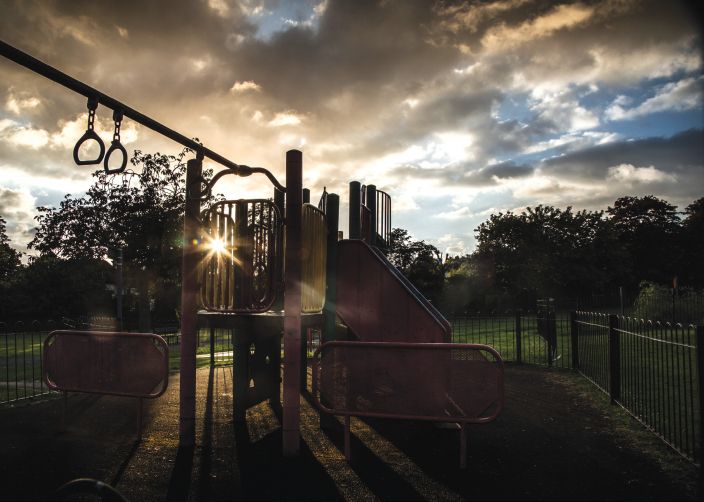
IEU Victoria Tasmania Senior Industrial Offcer Denis Matson looks at the legal responsibilities of school staff when supervising students.
Teachers and support staff
The ‘duty of care’ requires teachers to take all reasonable measures to ensure the safety of students under their care. Support staff are generally not professionally trained for the management of groups of students, but are expected to act ‘reasonably’ to protect those they are supervising. How these obligations translate into appropriate steps to take in particular circumstances is horribly vague.
The legal obligation: What is reasonable?
Courts, in finding teachers and schools negligent, have repeatedly used words like ‘A teacher must take such measures as are reasonable in the circumstances to protect a student from risk of harm that the teacher should have reasonably foreseen’, so ask yourself:
•what would a ‘reasonable person’ (being a teacher) do in the circumstances, and
• what harm is ‘reasonably foreseeable’?
Courts have also declared that:
•a higher standard of care is required for younger students and those with disabilities
•the principal is responsible for making arrangements for adequate playground supervision
•teachers must carry out their supervisory duties in such a way that students are reasonably protected from harm, and
•it is not just the teachers who are rostered on who have a duty of care. If a teacher notices something that endangers students but does nothing about it, they will ordinarily have failed in their duty of care.
For a non teacher, the test will be what a reasonable person in his/her position would do. Unlike teachers, support staff are not exposed to losing their registration. But they could face prosecution for negligence or, more likely, termination of their employment. Proving negligence in such matters is generally difficult and, if it can be shown that you acted ‘reasonably’, there will be no grounds for termination.
Policies
Schools and principals tend to believe that they can acquit their responsibilities by simply having a policy and a roster. The policies often do no more than try to shift the onus onto staff. If the policy or roster is unreasonable, or doesn’t work properly, staff should document this (emails will do) and insist on improvements. If the school fails to act appropriately, the staff will carry less risk.
The school’s policies definitely should include the times of supervision (including weekends) so that staff, students and parents are in no doubt as to when supervisions is provided and when no responsibility is being taken by the school.
Fights
There is a general duty of care to prevent injuries, but you may not be required to physically intervene. The Victorian Civil and Administrative Tribunal has found that a failure to intervene did not constitute “serious incompetence” and reinstated a teacher’s registration. Again, it will depend on what is ‘reasonable’ in the circumstances, like: the age of the students, their physical size, your size, whether the student(s) are armed, whether intervention is likely to be futile or may endanger you. Incidentally, an intervention which would endanger you is probably a breach of your duty under section 25 of the Occupational Health and Safety Act 2004 (Vic) to take reasonable care for your own safety.
When relief doesn’t show up?
Schools tend to say that that staff must stay out on duty. Imagine a court hearing – would they think your lunch break or the prevention of harm to kids was a greater priority? There are systems in place at some schools that help staff remember when they are on duty, and provide the steps to get a reliever when someone forgets. If the problem is more than occasional, you should document it and insist the school sets up a system to ensure that relief is available. You have a legal right to a lunch break and, while you might accept a shorter break on the odd occasion, a systematic failure to ensure you get your break exposes the school to penalties.
Off campus supervision
Some schools have instituted supervision at train/tram stations away from the school. By doing this, the school exposes itself to extended liability (as it then has some authority and control over events well outside the school grounds). The obligations of school staff remain the same as if they were in the school grounds.
Other schools have introduced policies requiring staff to report misconduct occurring off the school grounds (students smoking or wearing uniform incorrectly in public). As a guide you can only report what you are absolutely certain of. If you are not on duty, you have no authority to investigate. The measure of the right response is what is ‘reasonable in all the circumstances’.
Being sued
It’s extremely rare for school staff to be sued over supervision, let alone found negligent. Normally an aggrieved parent will sue the school, not least because, if found negligent, they are more likely to have the resources to pay damages. If sued, staff will normally be indemnified by their school. In NSW, employees acting in the course of duty must by law, be indemnified by their employer in almost all circumstances. In other states if you are sued, you should check whether your IEU membership includes professional indemnity insurance.
Further Information
For further information and advice contact your IEU office.


































































































































